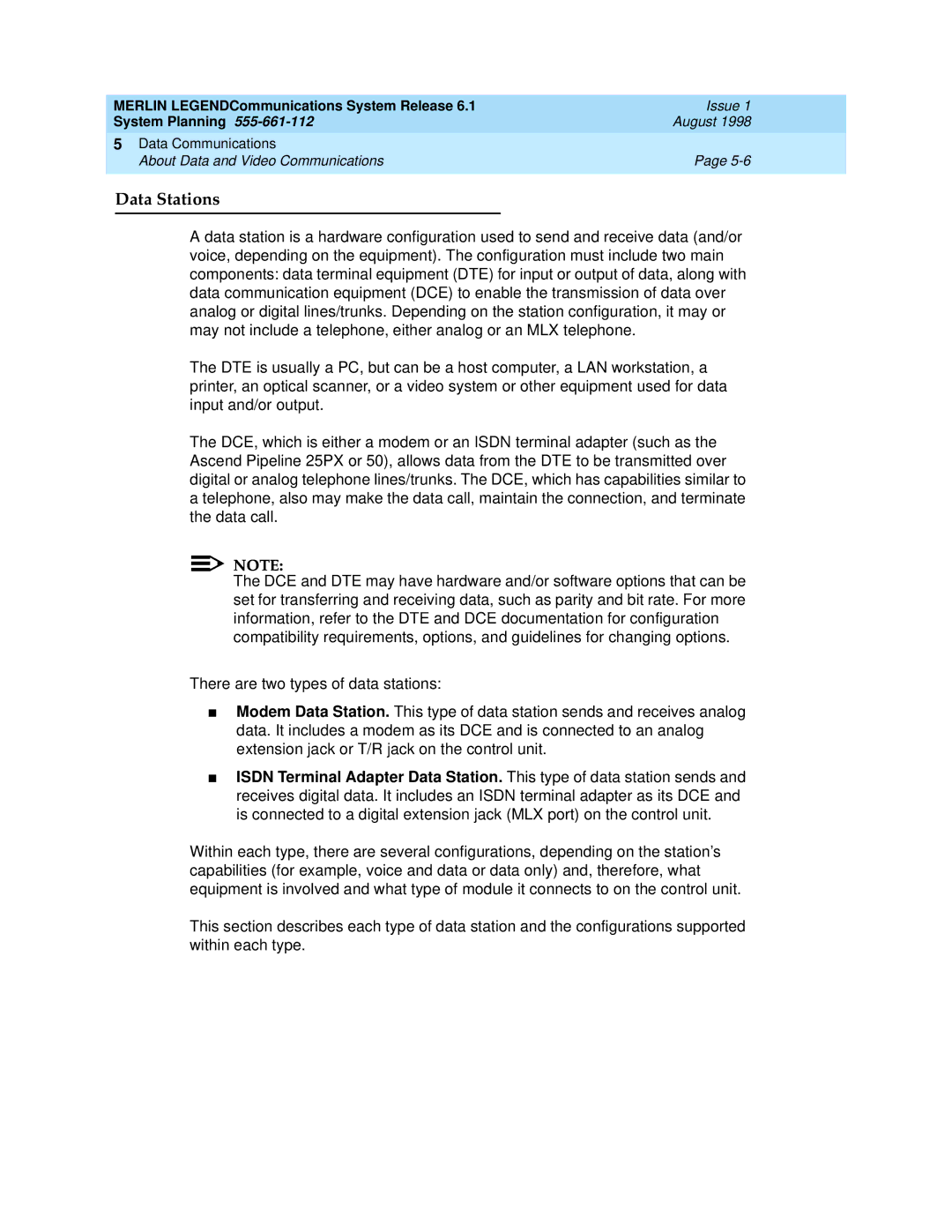MERLIN LEGENDCommunications System Release 6.1 | Issue 1 | |
System Planning | August 1998 | |
5 Data Communications |
| |
| About Data and Video Communications | Page |
|
|
|
| Data Stations | 5 |
|
|
|
A data station is a hardware configuration used to send and receive data (and/or voice, depending on the equipment). The configuration must include two main components: data terminal equipment (DTE) for input or output of data, along with data communication equipment (DCE) to enable the transmission of data over analog or digital lines/trunks. Depending on the station configuration, it may or may not include a telephone, either analog or an MLX telephone.
The DTE is usually a PC, but can be a host computer, a LAN workstation, a printer, an optical scanner, or a video system or other equipment used for data input and/or output.
The DCE, which is either a modem or an ISDN terminal adapter (such as the Ascend Pipeline 25PX or 50), allows data from the DTE to be transmitted over digital or analog telephone lines/trunks. The DCE, which has capabilities similar to a telephone, also may make the data call, maintain the connection, and terminate the data call.
NOTE:
The DCE and DTE may have hardware and/or software options that can be set for transferring and receiving data, such as parity and bit rate. For more information, refer to the DTE and DCE documentation for configuration compatibility requirements, options, and guidelines for changing options.
There are two types of data stations:
■Modem Data Station. This type of data station sends and receives analog data. It includes a modem as its DCE and is connected to an analog extension jack or T/R jack on the control unit.
■ISDN Terminal Adapter Data Station. This type of data station sends and receives digital data. It includes an ISDN terminal adapter as its DCE and is connected to a digital extension jack (MLX port) on the control unit.
Within each type, there are several configurations, depending on the station’s capabilities (for example, voice and data or data only) and, therefore, what equipment is involved and what type of module it connects to on the control unit.
This section describes each type of data station and the configurations supported within each type.
